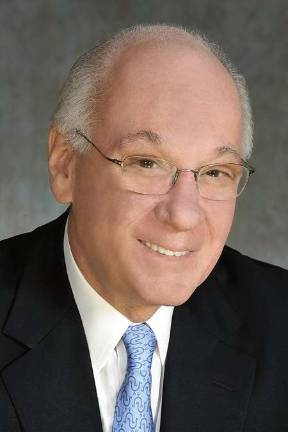2012 OTTY Awards: Chancellor Goldstein, Reforming Education One Initiative at a Time

By Rachel Stern A decade ago, some might argue, the City University of New York (CUNY) appeared very different than it does today. There was no Macaulay Honors College, School of Public Health, School of Professional Studies or graduate journalism program. There were less full-time faculty members and lower academic standards at the four-year colleges. The man credited with helping shift the system, spurring several educational programs and initiatives into action and fundraising over $4 billion, is Dr. Matthew Goldstein, CUNY's chancellor since 1999. "We're all here to try to improve the lives of our students and give them options that they can exercise during and after their time studying here," said Goldstein, the first CUNY graduate to become chancellor of the system. Goldstein studied statistics and mathematics at City College, commuting from Sheepshead Bay and juggling part-time odd jobs. He received his bachelor's degree in 1963, continuing on to receive a PhD in mathematical statistics from the University of Connecticut. He returned to CUNY in several positions, among them as a professor and then president of Baruch College and president of The Research Foundation. He began his tenure as chancellor by working to raise the academic standards of CUNY's 11 senior colleges, moving "remedial education" to the six community colleges, he said. "It required raising our academic assessment test to make judgments about whether people are ready for baccalaureate work," said Goldstein. "And if they were not ready, they would first have to study at a community college and do reasonably well before they could enter a senior college." Over breakfast with Mayor Michael Bloomberg a few years after his start, Goldstein brought up how he wanted to boost CUNY's community college graduation rates, which are notoriously low, "without diluting the curriculum," he said. Bloomberg then funded the $20 million program Associated Study in Accelerated Programs (ASAP) at all CUNY's community colleges. Launched in 2007 with small class sizes and required full-time study, ASAP helped 55 percent of its students receive their graduate degree in three years-three times the national urban community college three-year graduation rate of 16 percent. Furthermore, it inspired the creation of The New School, according to Goldstein, CUNY's latest community college slated to open this fall. A firm believer in math and science education, Goldstein was also behind The Decade of Science, a plan stretching from 2005 to 2015 that is modernizing science facilities, bringing in more faculty, and has created the School of Public Health. "I'm really trying to encourage students who have the aptitude and ability to make contributions that are not only important to themselves but to society," he said. As a public institution, Goldstein says CUNY still needs more funding to boost its diversity of programs and students. He stood behind the latest tuition increases-$300 per year under Gov. Andrew Cuomo's tuition plan-calling them "modest" compared to other public universities. "We've been keeping tuition at reasonable levels," he said, "without impairing the abilities of students who come to the university."